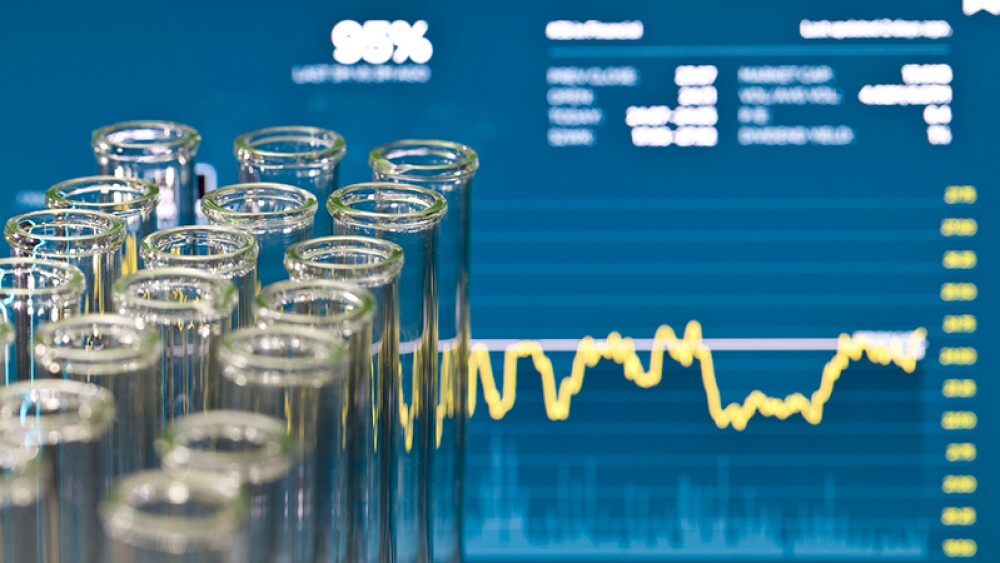September 22, 2017
By Mark Terry, BioSpace.com Breaking News Staff
Big catalytic events—drug approvals or stellar clinical trial results—can make or break a small company, and can reward investors in stable growth companies. Cory Renauer, writing for The Motley Fool, takes a look at three biotech companies that have upcoming catalysts.
Based in South Plainfield, NJ, PTC Therapeutics focuses on rare diseases and RNA biology. Its ataluren is in trials for Duchenne muscular dystrophy (DMD), specifically treatment for the nonsense mutation DMD (nmDMD). It has been approved in Europe for ambulatory patients with nmDMD.
Originally, the U.S. Food and Drug Administration (FDA) refused PTC’s application for Translama, citing lack of efficacy data. The European approval is dependent upon the company showing more data in a post-marketing study that is currently in progress. If this sounds more than a little bit like Sarepta and its conditional approval by the FDA for Exondys 51 for DMD, it’s because there are definite similarities.
Translama sales have tripled in Europe over the last year and if the FDA gives it an approval, those could skyrocket, along with the company’s share price.
Renauer writes, “Just over a year ago, I’d have considered Translarna’s FDA application doomed. That was before Sarepta’s Exondys 51 earned a controversial green light from the FDA to treat a tiny cross-section of people with DMD. More recent clinical trial results supporting Translarna’s FDA application aren’t encouraging, but anything seems possible following the agency’s approval of Exondys 51.”
The FDA’s independent panel will meet to discuss it on Sept. 28.
PTC Therapeutics is currently trading for $19.64.
Headquartered in Hamilton, Bermuda, Axovant Sciences is one of Vivek Ramaswamy’s biotech startups. Ramaswamy’s really good at convincing people to invest in his companies, but it’s not clear yet if they’re worth investing in. Axovant is built on intepirdine for Alzheimer’s disease. Ramaswamy acquired the drug from for $5 million after it had failed four consecutive mid-stage trials for Alzheimer’s.
The MINDSET clinical trial is looking at intepirdine in 1,315 patients on a stable background therapy of donepezil (Aricept). A readout on the Phase III trial is expected as early as next week.
What might work for Axovant is that it’s tagging along with Aricept, which doesn’t reverse or slow the rate of cognitive decline in Alzheimer’s, but temporarily improves memory by stopping the decay of neurotransmitter acetylcholine. Renauer writes, “Intepirdine boosts acetylcholine levels, and Axovant hopes the one-two punch of donepezil and intepirdine can actually slow the rate of cognitive decline among patients with mild to moderate Alzheimer’s disease. If it can, intepirdine could easily become a blockbuster drug with billions in annual sales, driving the stock several times higher in the process.”
Of course, if it fails, the company’s stock is going to be almost worthless.
Axovant Sciences is currently trading for $26.62.
Headquartered in Foster City, Calif., Gilead Sciences is one of the most profitable biotech companies in the world. It recently acquired Kite Pharma for $11.9 billion, marking a strengthening of its entry into immuno-oncology. But liver disease is the company’s powerhouse area with its hepatitis C franchise. But what has Renauer and investors paying attention is another liver disease known as nonalcoholic steatohepatitis (NASH).
It affects between 30 percent and 40 percent of adults in the U.S., and about 20 percent of them have inflammation and liver cell damage. Spending on NASH is projected to hit $40 billion by 2025.
The company will present data from a study of 125 patients for GS-0976 soon. It appears to be effective at preventing liver cells from turning excess carbohydrates into fatty acids. In a smaller study of only 10 patients, those receiving the drug had a 43 percent median decrease in liver fat content.
Renauer writes, “Unlike Axovant and PTC Therapeutics, repeating previous success in a larger trial probably won’t lead to big overnight gains for this biotech stock. NASH development is still in its early days, and there isn’t a standard way to measure efficacy for potential new drugs. That said, a substantial reduction in liver fat surely seems like a step in the right direction.”
Gilead is currently trading for $82.62.





